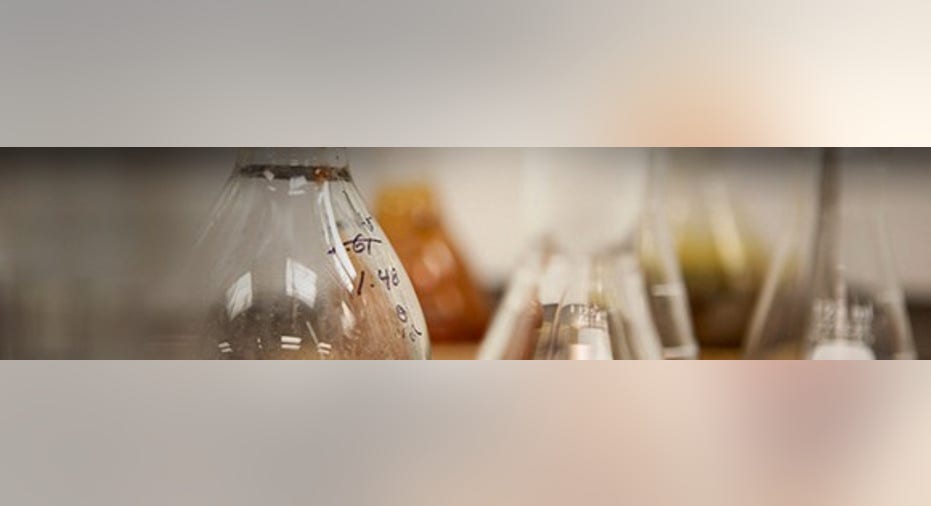3 Healthcare Stocks That Could Raise Their Dividends

Image source: Getty Images.
Golfers and income-seeking investors know how important it is to hit the "sweet spot" -- and for the latter group, that means the perfect balance of a decent current dividend yield and strong fundamentals that will allow that payout to grow. I can't help you perfect your swing, but I can help you find some stocks in the healthcare sector that hit the sweet spot.
Shares of these three stocks offer yields above 2% and are well positioned to continue boosting their payments.Let me show you how these healthcare stocks can help you spend more time enjoying your favorite leisure activities and less time worrying about your retirement income goals.
1. Amgen: A biotechnology behemoth
Blue-chip biotech Amgen (NASDAQ: AMGN)began paying a modest quarterly dividend of just $0.28 in 2011 and has been raising the distribution at a blazing pace. Over the past four years it has increased its payout at a stunning 29% annual growth rate. The current quarterly dividend of $1 per share offers a 2.3% yield, which isn't a bad place to start.
Past performance doesn't guarantee future results, but if Amgen were to continue raising its distribution at the same pace as it has for the past four years, you'd enjoy a double-digit yield on your initial investment in just six short years.Despite big raises in recent years, the percentage of profits required to make Amgen's payments -- i.e., its payout ratio -- is a cozy 36.3%. Payout ratios around 60% to 70% are generally considered sustainable, which gives Amgen plenty of room for further increases.
Image source: Amgen.
Amgen sports a diverse lineup of products, seven of which finished the first half on pace to pass $1 billion in sales this year. In September alone the company took several strides toward expanding its list of blockbuster drugs, including FDA approval of Amjevita, the first biosimilar approved in the U.S. that references AbbVie's Humira --the world's best-selling drug.
End payers are increasingly insistent on proof of actual benefits for pricey treatments, and Amgen delivered a couple of wins in this respect. The company announced data showing that giving its next-generation cholesterol-lowering drug, Repatha, to patients already on statins significantly lowered blockages in their coronary arteries.It also showed that its osteoperosis candidate, romosozumab, lowered patients' risk of suffering a second spine fracture by a stunning 73% over 12 months.
2. Cardinal Health: Distributing drugs and dishing out profits
Cardinal Health (NYSE: CAH) wrapped up its fiscal year in June, and with annual revenue of $121.5 billion, it's one of the most important healthcare companies you've probably never heard of. As one of the top three U.S. distributors, it enjoys economies of scale that smaller competitors can only dream of, and a joint pharmaceutical sourcing venture with retail giant CVS Healthstrengthens its position even further.
In May, Cardinal Health upped its dividend for the 20th year in a row.At the stock's recent price, the 16% bump to an annualized $1.80 puts its dividend yield at 2.3%, and even bigger raises could be on the way. In fiscal 2016, the company used just 20.4% of the $2.5 billion of the free cash flow it generated to make payments. That leaves plenty of runway for more big raises in the years ahead.
Gilead Sciences: Just getting started
Gilead Sciences (NASDAQ: GILD) made its first dividend payment last June, and this year it cautiously raised the distribution 9% to an annualized $1.88 per share for a yield of about 2.3% at recent prices. Rather than committing to a big dividend hike, the company has been been using thetruckloads of free cash flow it generates to repurchase its own shares at bargain-bin prices.
At just 7.1 times trailing earnings, Gilead Sciences is one of the least risky drugmakers on the market, and that safety extends to its distribution. In the first half of the year, the company used just 14.3% of the $8.47 billion in free cash flow it generated to make dividend payments. That should make boosting payouts in the years ahead a breeze, even if Gilead's growth stalls.
Image source: Gilead Sciences.
Luckily, its latest hepatitis C antiviral to earn approval, Epclusa, should help the company continue growing. It's the only treatment option for all patients with the virus that doesn't require adding poorly tolerated ribavirin to the dosing regimen (with the exception of those with advanced cirrhosis).There are an estimated 180 million people infected with hepatitis C around the globe, which gives Gilead's best-in-class treatment, and in turn its dividend, plenty of room to grow.
A secret billion-dollar stock opportunity The world's biggest tech company forgot to show you something, but a few Wall Street analysts and the Fool didn't miss a beat: There's a small company that's powering their brand-new gadgets and the coming revolution in technology. And we think its stock price has nearly unlimited room to run for early in-the-know investors! To be one of them, just click here.
Cory Renauer owns shares of Gilead Sciences. The Motley Fool owns shares of and recommends Gilead Sciences. The Motley Fool has the following options: short October 2016 $85 calls on Gilead Sciences. The Motley Fool recommends CVS Health. Try any of our Foolish newsletter services free for 30 days. We Fools may not all hold the same opinions, but we all believe that considering a diverse range of insights makes us better investors. The Motley Fool has a disclosure policy.



















